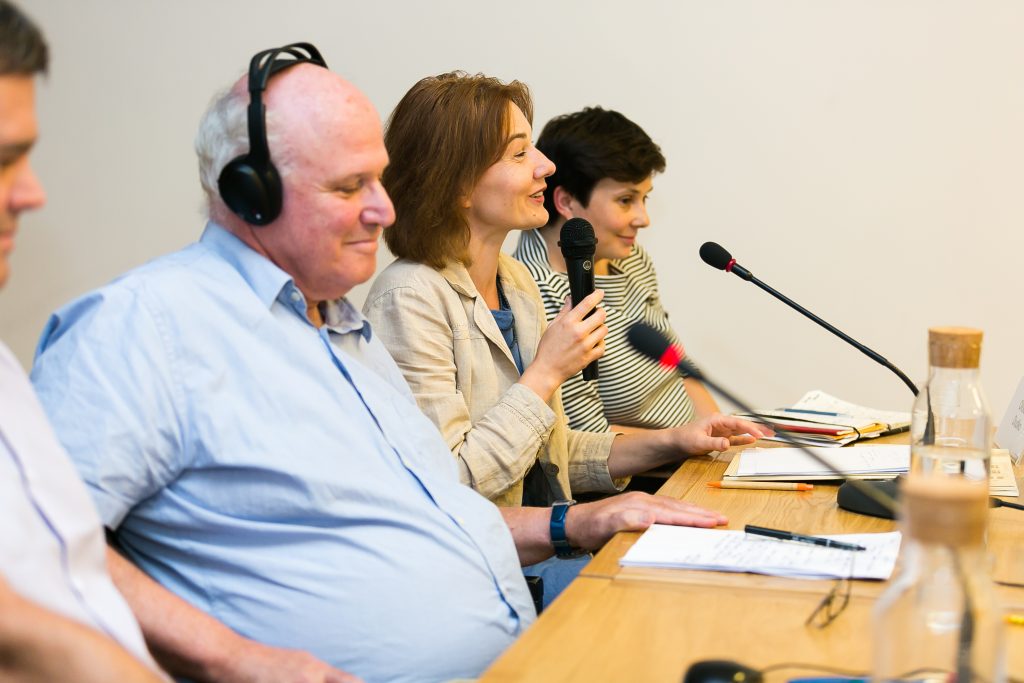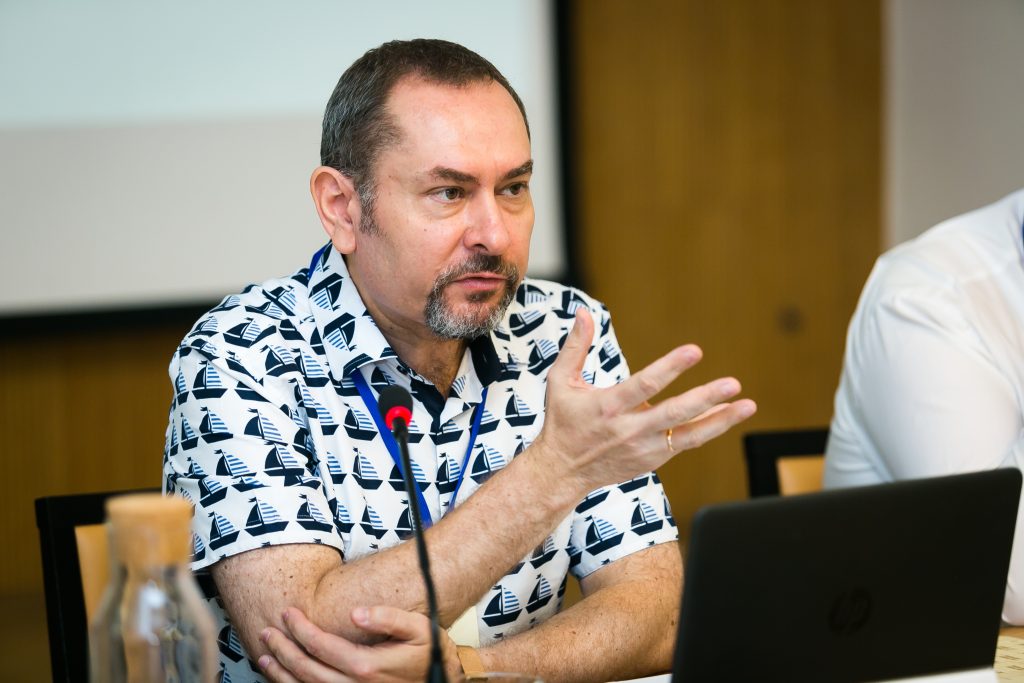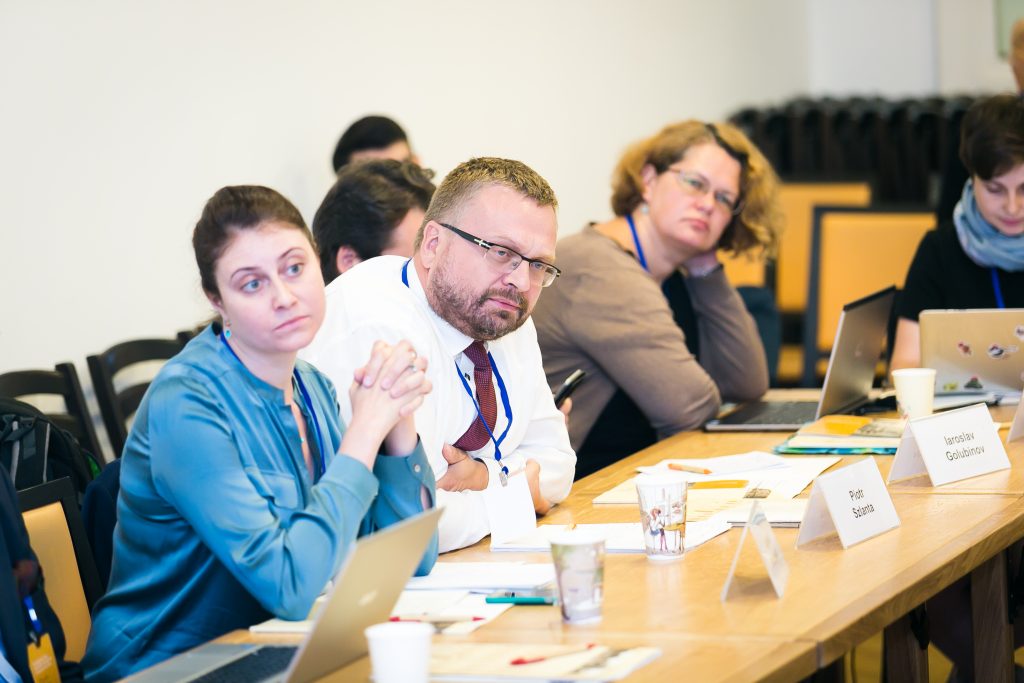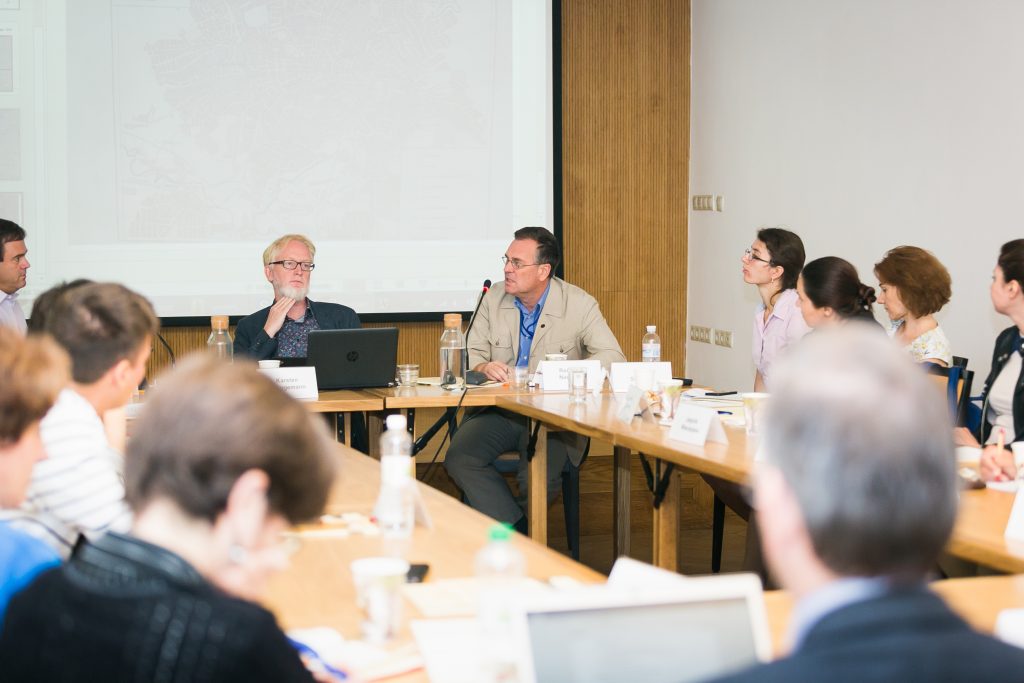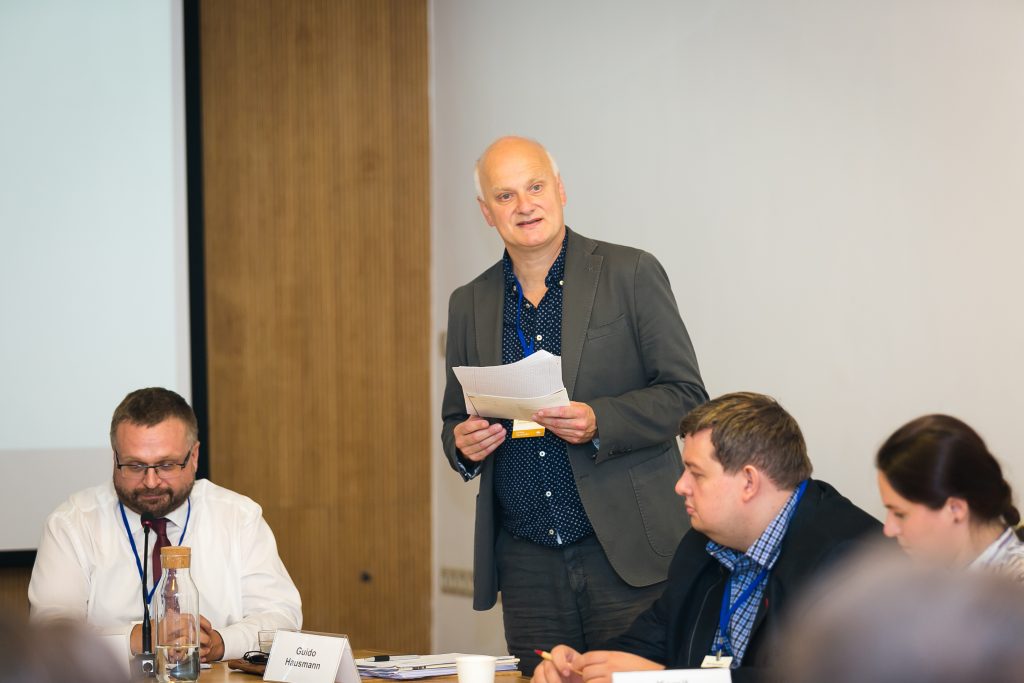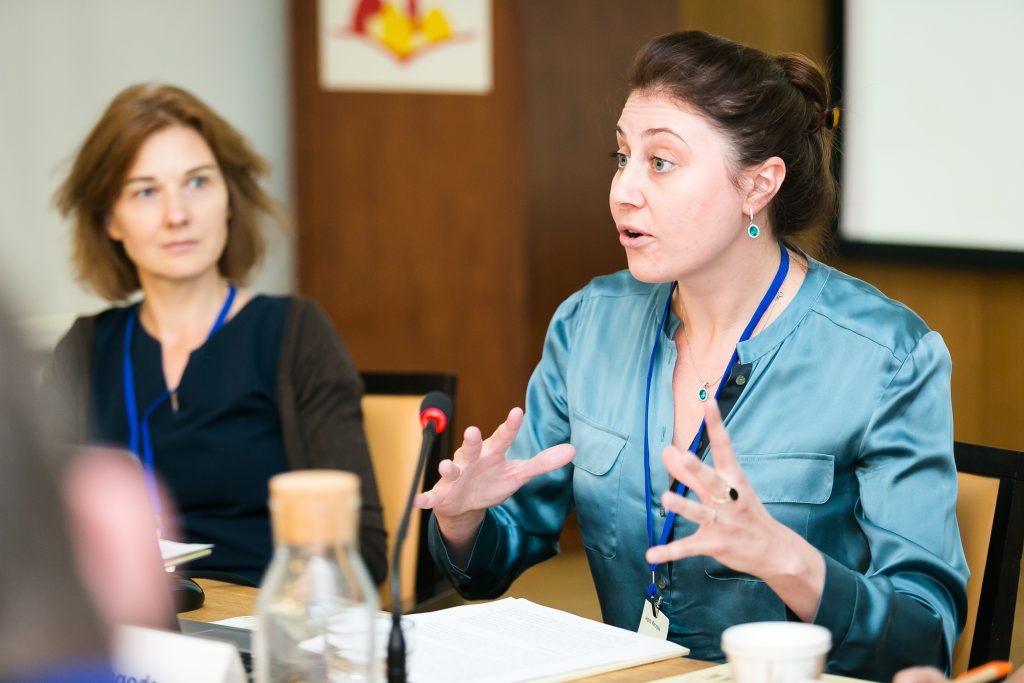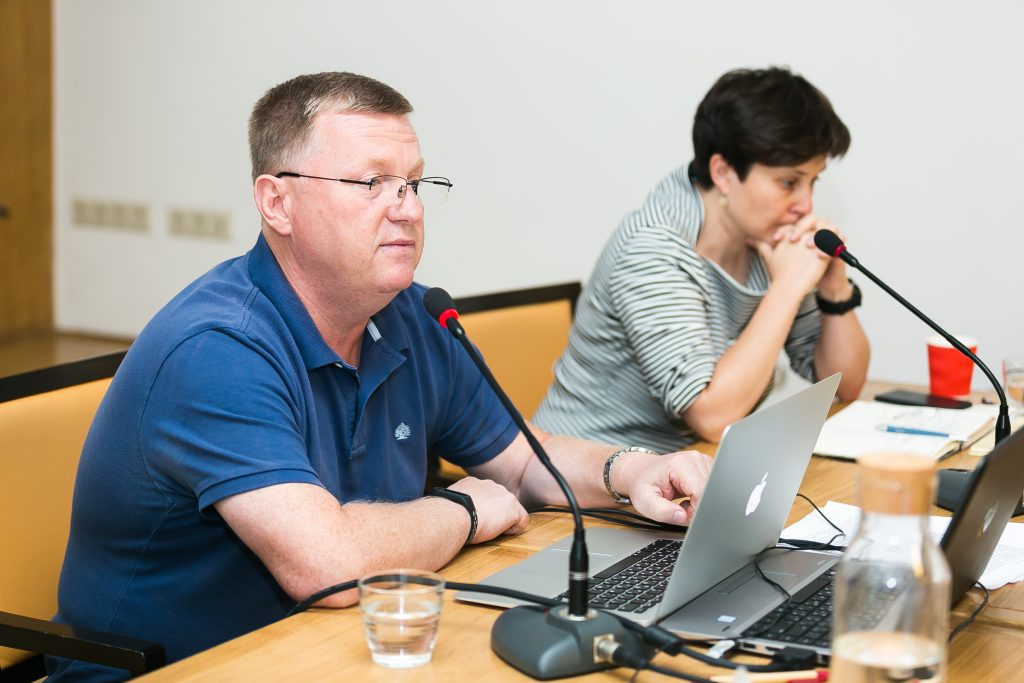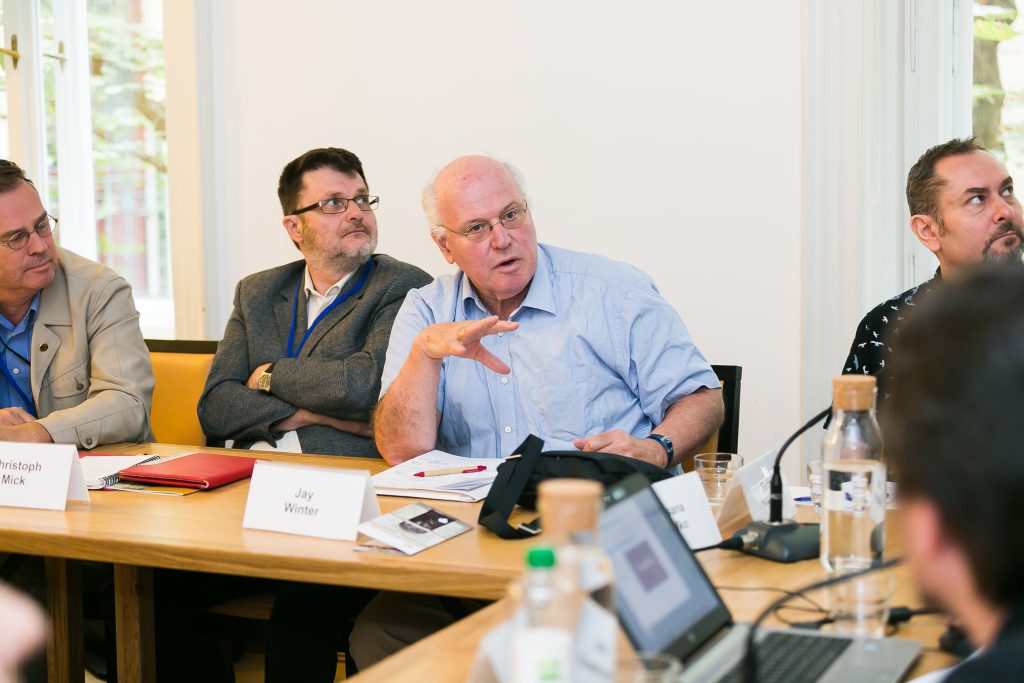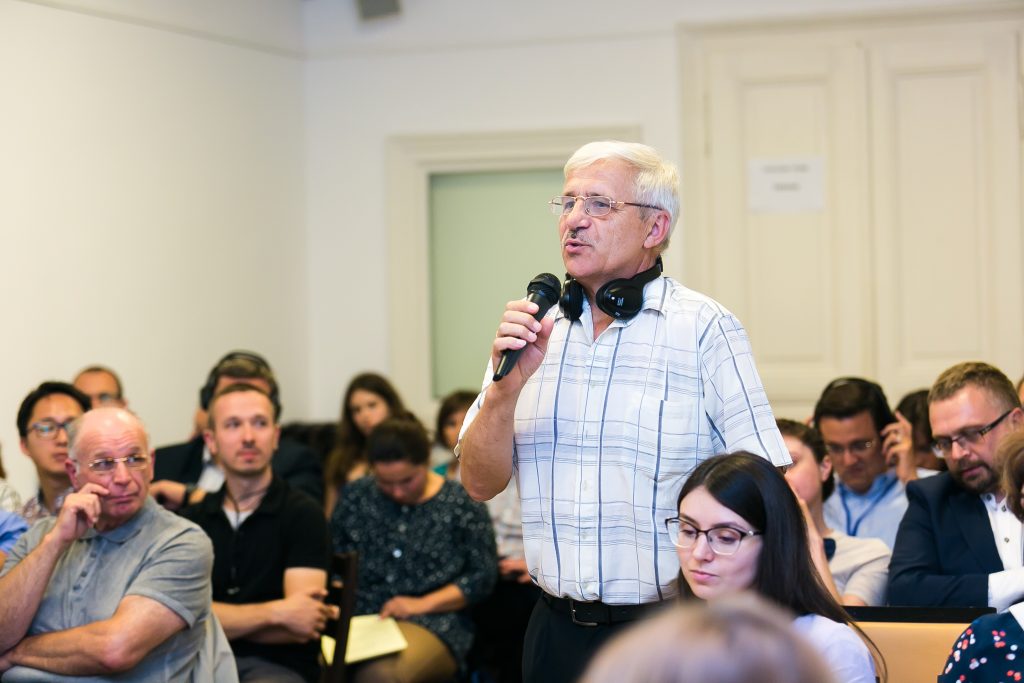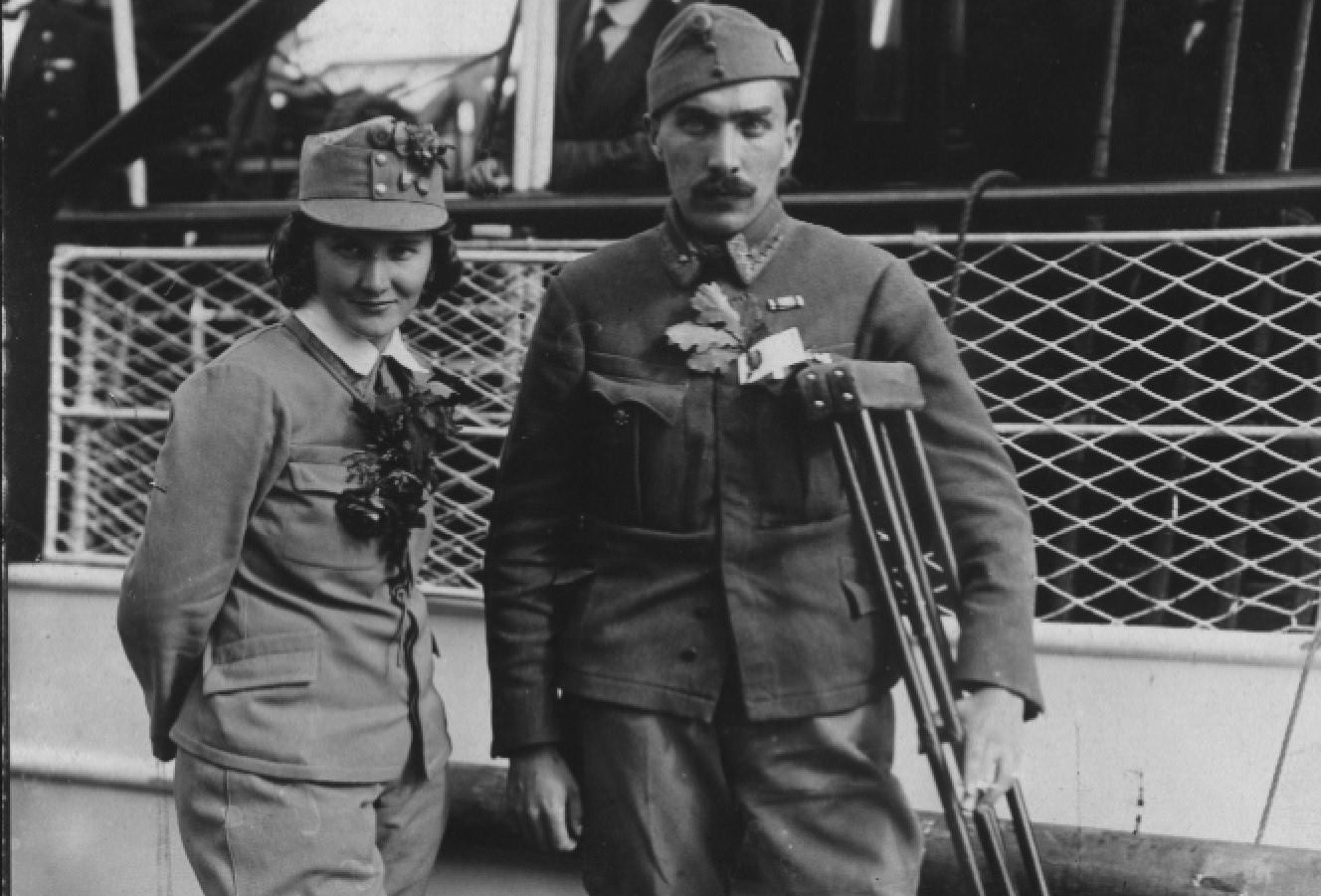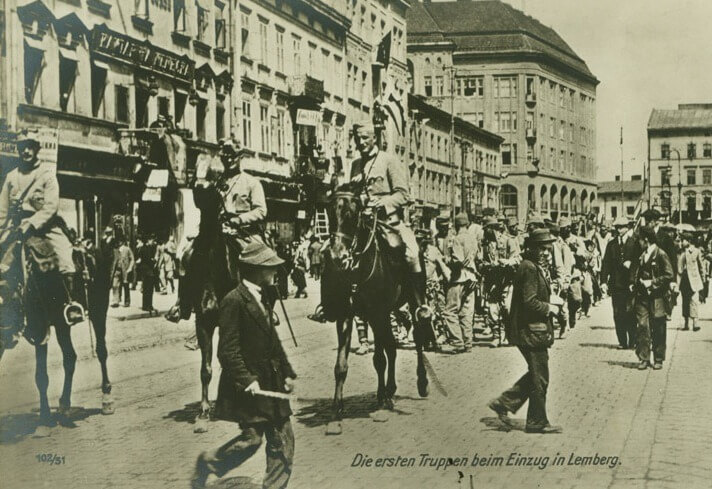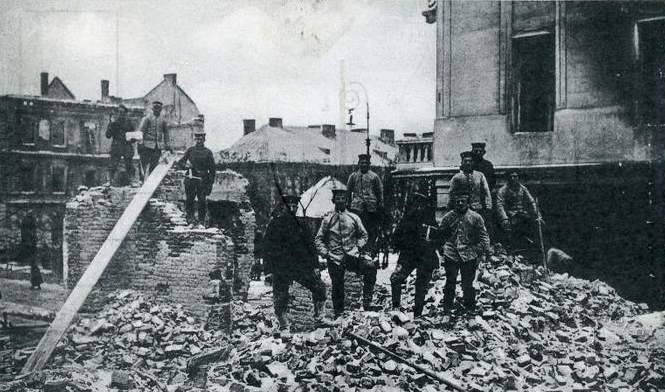The Multiplicity of Exits from the War: the Experience of the Eastern Front Cities
August 28-29, 2018
Center for Urban History, Lviv
The International Conference entitled "The Multiplicity of Exits from the War: the Experience of the Eastern Front Cities" is the second of the events dedicated to studying the urban experience of the Great War in the areas where the Eastern Front ran from the Baltic to the Caucasus. The first event, an international seminar "The City Experience of the Great War in Eastern Europe", took place on June 23-25, 2016 at the Center for Urban History of the Central Eastern Europe in Lviv.
The purpose of our conference is to focus on the period of the end of the Great War, which on the Eastern Front was accompanied by revolutions, formation of national states, civilian wars, and armed conflicts for disputed territories. Chronologically, it covers the years 1917-1923: from the February Revolution in the Russian Empire to the final determination of borders in post-war Eastern Europe. Consequently, this era was a period of transformation when new political practices were introduced in conditions of general social and economic instability, violence and impunity, demobilization and new mobilization. At the same time, these years can be considered as an approbation period of practices which will eventually become dominant in the totalitarian states of the USSR and the Third Reich: controlling people through the introduction of cards and the differentiation of society by ethnic/class/political criteria.
Studying these processes in all their multidimensionality and complexity, we proceed from the fact that they should not be separated from the very context of the war. Therefore, we propose to consider them avoiding the division into the periods of the First World War and the Revolution. That is why we suggest analyzing them in the light of the exits from the war and involving in their study perspectives of different approaches, e.g. those of historians of war, researchers in national histories and revolutions, thus challenging the traditional historiographic divisions between the researchers of the First World War (focused mainly on Western Europe), the revolution (mainly historians of Russia and the USSR) and national states (national historiographies of Central and Eastern Europe), and historians of the empires. Taking into account the peculiarities of the experience of the war at the Eastern Front, whose end is traditionally marked with 1918 in historiography, opens up new opportunities for the study of the First World War, civil wars, and revolutions as a holistic phenomenon.
For better comprehension of the material and identification of peculiarities within the region, we choose the cities as the subject of research attention. A transnational comparative perspective of cities will help to better understand the process of various cities’ "exits" from the war, the cities which experienced the collapse of the Russian, Austro-Hungarian, and German Empires and the process of creating national states. A comparative method in the study of cities will help to better understand the common experience of the First World War and the peculiarities of its end at the Eastern Front, without, however, avoiding the analysis of regional and national peculiarities. The micro level of the city allows, on the one hand, to better understand the section of revolutionary and state-building transformations and to consider the transformation of the city from the core of the "home front" into the center of state and regional governance. On the other hand, it allows to consider the period of the most rapid changes "from below", taking into account everyday histories and practices of behaviour proper to different strata of population, acquired in conditions of further chaos and destruction, violence and collision between the culture of war and that of peace. We are interested in exchanging research findings among researchers studying the urban experience of the given transformation period within the framework of national, transnational, imperial, and global approaches.
Themes and topics:
The conference focuses on the following main topics:
- Crisis of pre-war governance practices and the search for new models of city governance.
- Nationalization of urban policy, mobilization of ethnicity and self-identification of citizens, political transformation of urban space.
- Practices of controlling chaos, demobilization and transformation of cities into a collision between cultures and experiences caused by the Great War.
- Violence and destruction, demographic and spatial changes in cities amidst street fighting, war, and revolution during the collapse of empires and the formation of new states.
- Totality of the war and its influence on the practices of controlling the population in the post-war period, the problem of demilitarization of state institutions in the region after the disintegration of the Eastern Front.
We invite researchers to present research results related to the following topics (but not limited to):
- City governance at the time of revolutionary changes, social unrest, formation of nation-states.
- Cities as a space of war and struggle between national projects.
- Violence, pogroms, destruction, "revolutionary necessity", "struggle against the old regime", expression of war experience.
- Designing a national identity in cities.
- Activities and socialization of national minorities.
- Confrontation of pre-war, war, and post-war everyday practices.
- Cities and mass movement of the population: demobilized persons, prisoners of war, refugees, deportees and displaced persons and their search for a new homeland.
- Transformation and changes of urban culture: a symbiosis of multicultural practices, war-peace experience and needs for new political regimes; the limits of confrontation and opportunism.
- Transformation of society and social roles: the precariousness of the changes caused by the war, and the restoration of pre-war traditions.
- Women’s experience of war, revolution, and post-war life.
- Children’s experience of war, post-war childhood, the child as the object of new political practices.
- Post-war life experiences of the war participants and of the disabled in a new political reality.
- Violence and resistance to violence, citizens’ survival practices in conditions of the formation of new states.
Participants
This will be an international and pre-circulated papers conference with open call and invited keynote speakers. We expect to host 20-25 participants from Ukraine and abroad. We also invite keynote speakers, who will deliver lectures and address the most acute aspects of subjects discussed during the conference. Our aim is to bring together distinguished scholars and researchers from a variety of disciplines, including but not limited to history, anthropology, geography, peace and conflict studies, literature, performing arts, media studies and related disciplines. Advanced PhD students and young researchers from Eastern Europe are especially encouraged to apply and contribute. The working language of the workshop is English.
Organizers
Center for Urban History (Lviv, Ukraine)
History department, National University of "Kyiv-Mohyla Academy" (Kyiv, Ukraine)
University of Victoria (Victoria, Canada)
ContactInternational Conference
conferences@lvivcenter.org
Organizing Committee
Olena Betlii olena.betlii@gmail.com
History department of National University of "Kyiv-Mohyla Academy"; Center for Urban History
Oksana Dudko o.dudko@lvivcenter.org
Center for Urban History
Serhy Yekelchyk serhy@uvic.ca
University of Victoria Department of Germanic and Slavic Studies
Credits
Сover Image: Under the city council in Lemberg / Lwow / Lviv, November 1918. Collection of Stepan Haiduchok, archive of the Krypyakevych family / Urban Media Archive
Image Gallery by Iryna Sereda

